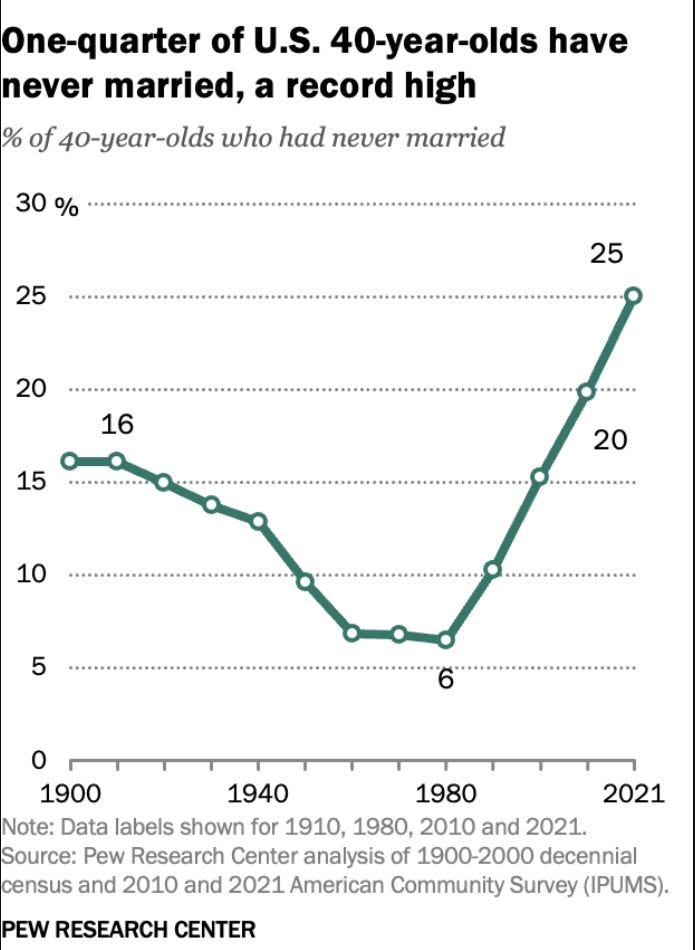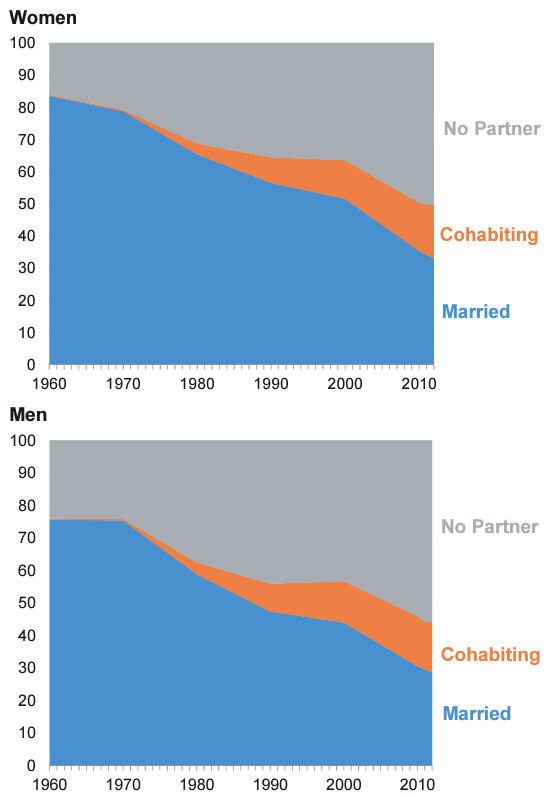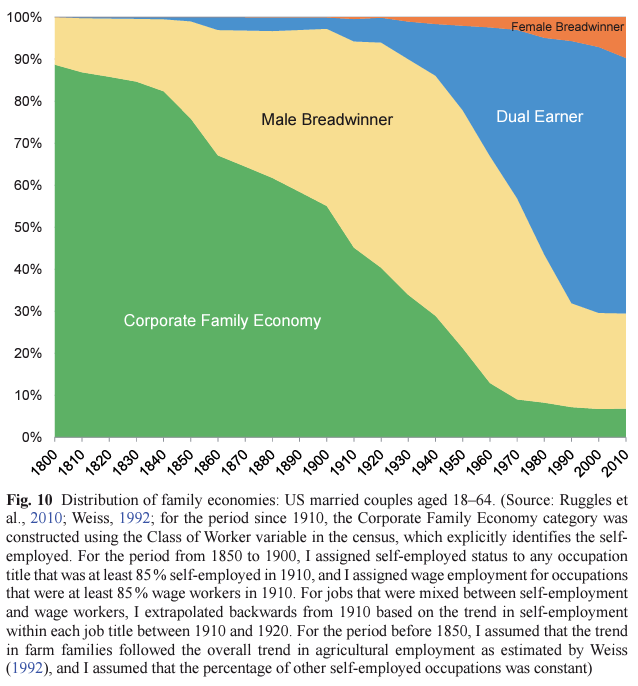Love and marriage, love and marriage
They go together like a horse and carriage
This I tell you, brother
You can't have one without the other- Frank Sinatra
The institute of marriage is dying.
People are getting married later or not at all.
Facts:
Since the mid 20th century men and women are getting married later in life. Since marriage opportunities decrease over time, delaying marriage increases the likelihood of never marrying at all.
25% of 40 year olds in the US have never been married. This is a record high. (Source: Pew Research)
The proportion of middle-aged women who never married rose throughout the 20th century.
One might assume that couples are simply cohabitating instead of making an official declaration. This is not accurate. While cohabitation has risen, it does not replace the decline in marriages.
Learn more: Marriage, Family Systems, and Economic Opportunity in the USA Since 1850 by Steven Ruggles
Why are people not getting married anymore?
Despite what Frank Sinatra says about “Love and Marriage” (i.e. you can’t have one without the other), throughout history marriage was equal parts economic and romantic union. Before the advent of labor-saving technology and the corporation, most families carried on family businesses. Man, woman, kids all pitched in to make it work.
A lot of time and energy was required to operate the household. Things we take for granted - water, washing, fuel, food - were much more laborious a century ago. A dedicated economic union provided numerous benefits to the family.
As families moved to urban settings and men increasingly left the home for work, labor-saving technologies like the washing machine reduced the workload placed on women in the home. For a while, men were breadwinners, but with more available time and more opportunities women began entering the workforce. With this came greater freedom and independence - for both man and woman.
While a dual-income household can create significant combined economic wealth, the success of one income-earner is not dependent on the other. In contrast, the family enterprise of the 1800s operated as a unit - additional labor ensured the enterprise was successful.
Today, someone can earn an income and manage a household without partnering with someone else. Therefore, they are less likely to rush into marriage. People today have what hey lacked in the past - choice.
While the institute of marriage remains, the awakening of choice exposed the flaws of marriage and divorce rates rose. After witnessing their parents battle, and ultimately successfully decouple, why would Gen X and Millennials be in a rush to marry?
Side question: Could rising cost of living reverse declining marriage trends, as individuals are forced to combine finances in order to afford basic living accommodations?








